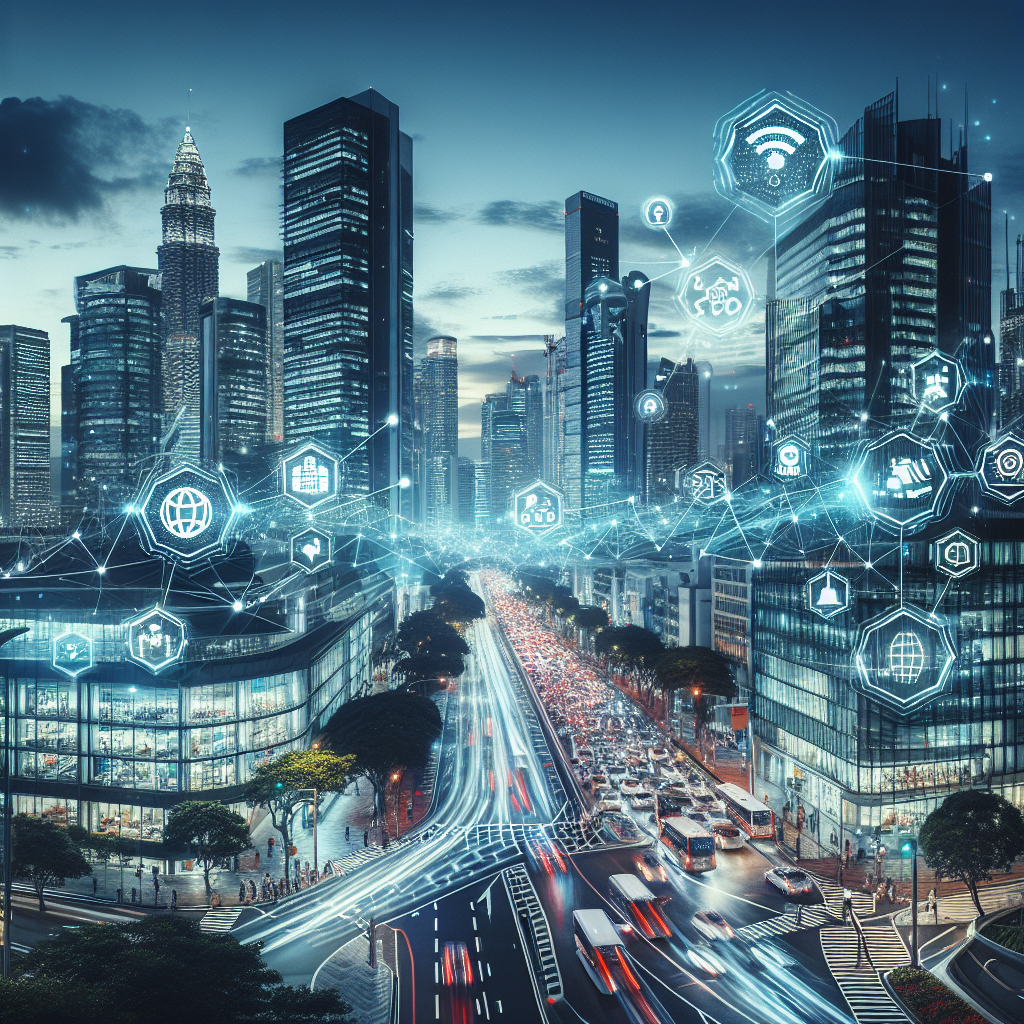Natural Language Processing (NLP) is a branch of artificial intelligence that focuses on the interaction between computers and humans using natural language. NLP has made significant advancements in recent years, with applications ranging from virtual assistants like Siri and Alexa to language translation services and sentiment analysis tools. As smart cities continue to develop and integrate technology into urban environments, the future of NLP in these cities is promising.
Smart cities are urban areas that use technology to improve the quality of life for their residents. This can include using sensors to monitor traffic flow, implementing smart grid systems to manage energy usage, and deploying digital platforms for citizen engagement. NLP can play a key role in smart cities by enabling more efficient communication between residents and city services, as well as facilitating the analysis of large amounts of data generated by the city’s infrastructure.
One of the main ways that NLP can benefit smart cities is through the development of chatbots and virtual assistants. These tools can provide residents with information about city services, help them navigate public transportation systems, and even assist with emergency response. By using natural language processing, these tools can understand and respond to human language in a way that is intuitive and user-friendly.
Another area where NLP can have an impact on smart cities is in the analysis of data generated by sensors and other IoT devices. By using NLP techniques to process and analyze this data, city officials can gain insights into traffic patterns, energy usage, and other aspects of urban life. This can help them make more informed decisions about how to improve city services and infrastructure.
In addition to these practical applications, NLP can also help to improve the accessibility of smart city services for residents with disabilities or language barriers. By enabling residents to interact with city services using natural language, NLP can help to ensure that everyone has equal access to the benefits of smart city technology.
Overall, the future of NLP in smart cities is bright. As cities continue to invest in technology and data-driven solutions, NLP will play an increasingly important role in enabling efficient communication, data analysis, and citizen engagement. By harnessing the power of natural language processing, smart cities can become more responsive, inclusive, and sustainable.
FAQs:
1. What is natural language processing (NLP)?
Natural language processing is a branch of artificial intelligence that focuses on the interaction between computers and humans using natural language. NLP enables computers to understand, interpret, and generate human language in a way that is meaningful and useful.
2. How can NLP benefit smart cities?
NLP can benefit smart cities by enabling more efficient communication between residents and city services, facilitating the analysis of data generated by the city’s infrastructure, and improving the accessibility of smart city services for residents with disabilities or language barriers.
3. What are some practical applications of NLP in smart cities?
Some practical applications of NLP in smart cities include the development of chatbots and virtual assistants to provide residents with information about city services, the analysis of data generated by sensors and other IoT devices to gain insights into urban life, and the improvement of accessibility for residents with disabilities or language barriers.
4. How does NLP enable more inclusive smart city services?
By enabling residents to interact with city services using natural language, NLP can help to ensure that everyone has equal access to the benefits of smart city technology. This can help to make smart cities more inclusive and accessible for all residents.
In conclusion, the future of natural language processing in smart cities is promising. By harnessing the power of NLP, cities can improve communication, analyze data more effectively, and ensure that all residents have equal access to the benefits of smart city technology. As smart cities continue to evolve and integrate technology into urban environments, NLP will play a key role in shaping the cities of the future.

